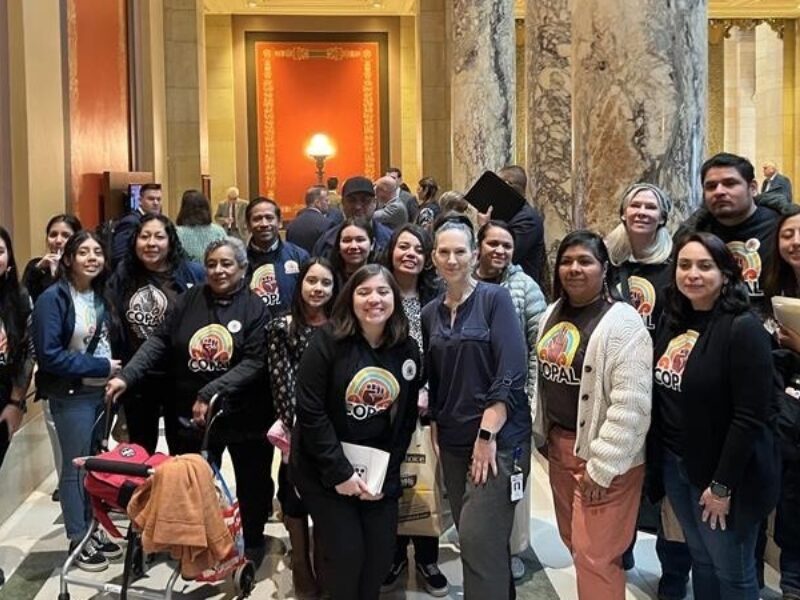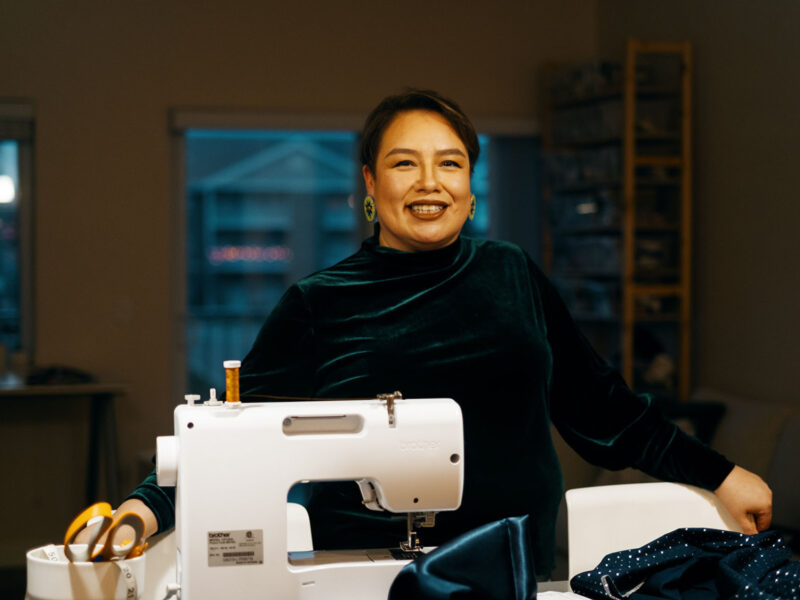Learn how a Program Related Investment helped entrepreneur Conrad P. Nguyen support his dreams of being a business owner.
The Metropolitan Economic Development Association, better known as Meda, has been supporting business owners for 50 years. Through the Saint Paul & Minnesota Foundation’s Minnesota Community Investment Fund, a Program Related Investment (PRI), fundholders are supporting Meda’s entrepreneurs.
Since its founding, Meda has provided access to capital and technical assistance to more than 20,000 Minnesota BIPOC entrepreneurs. It has also launched more than 500 minority businesses.
“Our mission is to really drive focus on minority business enterprise,” said Meda President and CEO Alfredo Martel. “Ownership is one of the fastest and most effective ways to increase access to wealth and financial capability, not only for one generation, but as we're seeing now, multiple generations.”
Over the years, the Foundation has used PRIs as a way to help fundholders amplify giving. Meda was a recipient of the Foundation’s first donor-led PRI.
PRIs complement grantmaking, offering another way for donors to have an impact on the community – by investing in a loan. PRIs provide below-market-rate loans to organizations that might not have access to traditional financing, all while providing a social benefit return as well as a small capital return to the investor.

“Along with grants, PRIs have supplied us with the net equity that we need to function as a community development financial institution (CDFI),” said Patrick Pariseau, Vice President of Lending and Client Services for Meda. “Our PRIs vary from $200,000 all the way up to $3 million, providing us the opportunity to multiply that factor and diversify our risk with other institutions.”
PRI In Action: Kortech
According to Patrick, within one to two years of Meda’s clients obtaining the business, their net worth statement typically goes up by $100,000. One client who was able to grow his business thanks to PRI funds was Conrad P. Nguyen, owner and president of KORTECH.
Conrad began working with Meda in 2019, around the time he was contemplating leaving the corporate sector.
“I decided to pursue a different path, a different journey in entrepreneurship,” Conrad said. “I reached out to George Jacobson (Meda’s Director of the Minnesota MBDA Business Center), Patrick and the team and let them know what I was doing. I found a business that I wanted to buy, and had financing to acquire it, but I needed operating capital, so that’s when I solicited Meda’s support. They provided me with a working capital loan to sustain the business during COVID, and positioned us for growth.”
The company he purchased was KORTECH, a specialized project management and staffing firm connecting people to large companies and government agencies for project and construction management, facility support services and onsite contract staffing. Thanks to Meda, Conrad was not only able to acquire KORTECH, but received technical support in vetting the business and negotiating with the sellers.
“That’s the one thing you often hear about minority-owned businesses and where we struggle the most – having working capital to grow and sustain the business,” Conrad said. “Donors want to make sure that their money is creating an impact. Me, owning a company like KORTECH that’s been around for 50 years, and turning it into a minority-owned business plays a role in that impact and community ecosystem.”
Since purchasing KORTECH, Conrad has made it his mission to employ people of color and women. When redesigning his website, his first instinct was to search for minority, women-led web design companies. He has also made an effort to employ female construction workers at KORTECH. He is not only making changes internally at his company, but with his clients as well.
“A lot of times when big companies talk about diversity and inclusion, it sounds awesome, but it never cascades down, so I’m creating opportunity and opening doors with KORTECH to ensure minorities are in these spaces,” said Conrad.
He is just one of many entrepreneurs who has benefitted from the Foundation’s PRI work. In addition to helping grow BIPOC-owned businesses and protecting jobs, PRIs have helped create new job opportunities, and provide access to affordable housing and home ownership.










